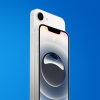Cook argued that the mobile industry will not race to the bottom, it will split. One part will go cheap, while the other one will stay premium and focus on quality, at a price.
“We’re not in the junk business,” he said, in a clear allusion to the iPhone 5C controversy. Many analysts and consumers alike expected the new phone to be budget oriented, which it is clearly not.
“There’s a segment of the market that really wants a product that does a lot for them, and I want to compete like crazy for those customers,” he said.
In other words, Apple will stay decidedly upmarket and there is nothing wrong with that. Apple practically wrote the book on premium consumer devices.
Cook also took a swipe at Android, pointing out that fragmentation remains a huge issue. “I don’t think of Android as one thing,” he said.
Fragmentation is indeed a huge problem facing Android, but Cook’s remarks don’t really paint the full picture. Although Apple’s update process is much faster and new iOS versions take just days to propagate on most devices, Apple is also facing fragmentation, albeit a different flavour of fragmentation.
So, on paper, most iOS devices will be rocking iOS 7 in a matter of days, but in reality they won’t have the same feature set, not even close. What’s more, the problem is affecting relatively fresh devices. For example, AirDrop is not coming to the iPad 3, iPhone 4 or the iPhone 4S, let alone the iPad 2, yet it is coming to the iPad mini.
While iOS is rolling out, it doesn’t bring the exact same feature set to all devices. Many iPad 3 users are moaning about several things missing from the update, despite the fact that the iPad 3 is still a very powerful device and shouldn’t have trouble supporting said features. The same thing happened with Siri on the iPhone 4 and the list of “feature fragmentation” for iOS is very long indeed.
As the market matures and more users stick to their iPhones and iPads for more than a year or two, this nasty habit could irk more and more people. We're a tech site, we're not into philosophical arguments, but what exactly is the difference between version fragmentation and feature fragmentation for the end-user?




